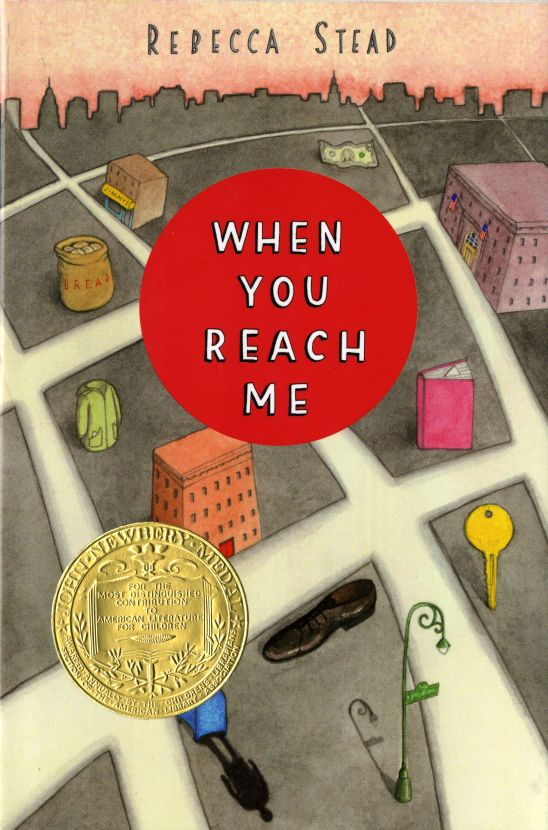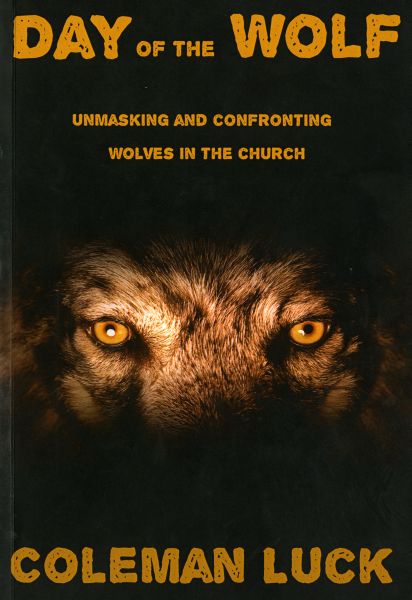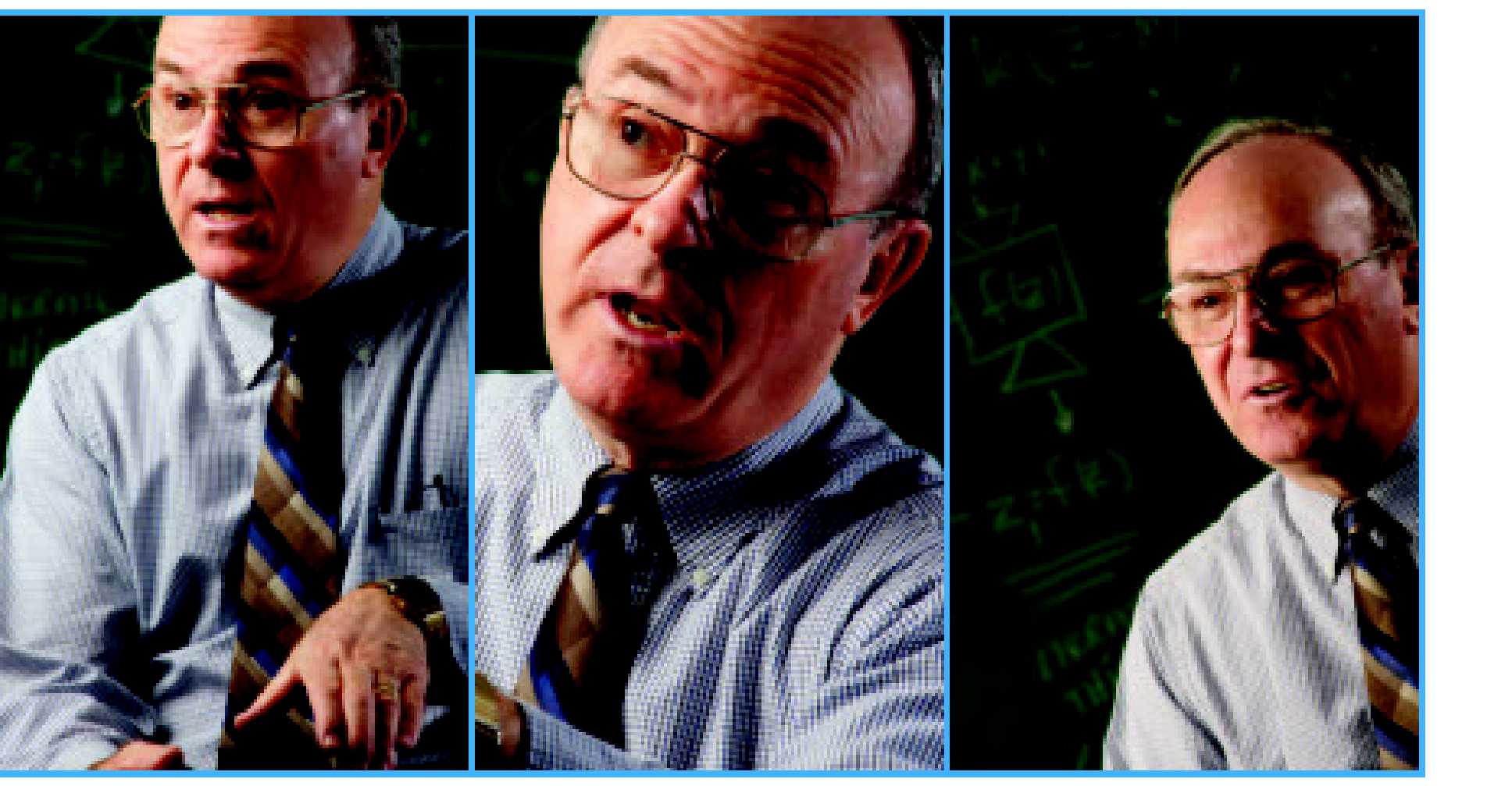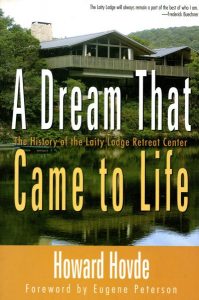 Laity Lodge, situated in the Frio River Valley near Leakey, Texas, overlooks a magnificent vista of forested hills and jagged rock. Far from urban chaos, this retreat stands as a haven for those needing to explore pressing questions, absorb the peace of the Spirit, or simply run into God.
Laity Lodge, situated in the Frio River Valley near Leakey, Texas, overlooks a magnificent vista of forested hills and jagged rock. Far from urban chaos, this retreat stands as a haven for those needing to explore pressing questions, absorb the peace of the Spirit, or simply run into God.
Founded in 1961 by Howard Butt, Jr., the lodge welcomes its guests to encounter the sacred in privacy or community. Visitors to the canyon sing, walk, converse, eat and pray. Trusting every guest to engage all available resources, each retreat is opened with these words: “We have an agenda, but we don’t have an agenda for you.”
Frederick Buechner, author of Godric and The Sacred Journey, was a frequent speaker at Laity Lodge, where his recorded lectures have been transcribed and published as The Remarkable Ordinary (2017). He recalled:
On my first visit to Laity Lodge, when I was told not to turn left at the Frio River but in the Frio, I knew I had reached the land of Oz. After my first few days there I knew that, more even than Oz, it was a holy place. The high hills spoke of it. The river spoke of it. The “blue hole” where we swam spoke of it, as did Betty Ann Cody’s a cappella singing of “There Is a Balm in Gilead,” which left my face streaming with tears and which I will remember until the end of my days. I don’t believe I have ever known a place as full of human kindness and openness and grace as I have found in virtually everyone I met there….I doubt I will ever get there again, but it will always remain part of the best of who I am.
Theologian J.I. Packer, author of Knowing God, said, “Laity Lodge…is one of the Christian world’s best kept secrets. Personal maturity in Christ is what it was and is about, and its ministry goes from strength to strength.”
Madeleine L’Engle, author of A Wrinkle in Time, spent one month each year for a decade at the Lodge. She began one lecture series declaring, “I am very blessed to have been here for this month in this place which, I believe, is holy and healing.”
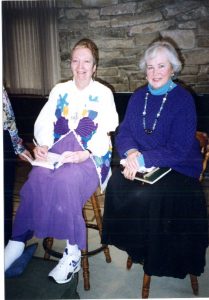
Eugene Peterson, pastor and translator of The Message, supported Laity Lodge’s efforts to erase the distinction between the “full-time” minister and the layman. He wrote, “…That seed quickly matured into a lifelong determination to do whatever I can to abolish this expert/layperson division in the Christian community.”
Laity Lodge speakers whose papers are archived at Wheaton College include Frederick Buechner, Madeleine L’Engle and Luci Shaw.
The story of Laity Lodge is chronicled by former director Howard Hovde in A Dream That Came to Life: The History of the Laity Lodge Retreat Center (2007).
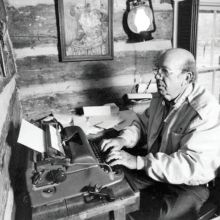 Presenting himself as a backwoods “bootleg” hayseed, wearing cowboy boots and straw hats, he actually possessed a fine intellect, abundant courage and quick wit. Campbell, siding unhesitatingly with the oppressed and disenfranchised, was one of four who boldly escorted African American students, known as the “Little Rock Nine,” into the racially segregated Little Rock Central High School in 1957. Campbell was also the only white man to attend the founding of the Southern Christian Leadership Conference, led by Dr. Martin Luther King, Jr. in 1957.
Presenting himself as a backwoods “bootleg” hayseed, wearing cowboy boots and straw hats, he actually possessed a fine intellect, abundant courage and quick wit. Campbell, siding unhesitatingly with the oppressed and disenfranchised, was one of four who boldly escorted African American students, known as the “Little Rock Nine,” into the racially segregated Little Rock Central High School in 1957. Campbell was also the only white man to attend the founding of the Southern Christian Leadership Conference, led by Dr. Martin Luther King, Jr. in 1957.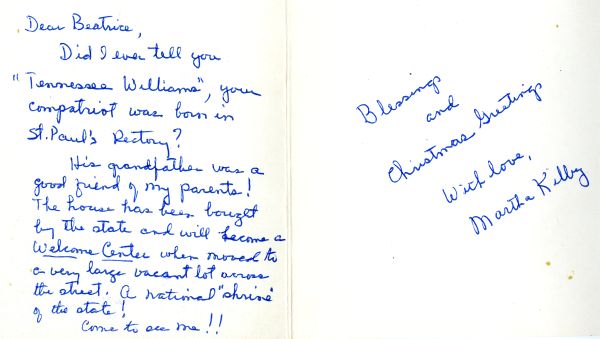
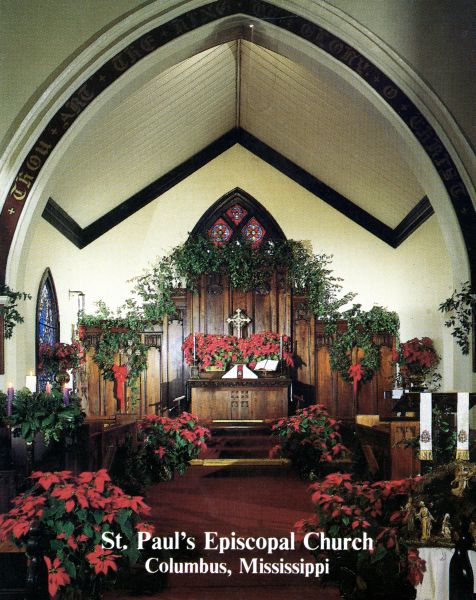 According to the website for the Tennessee Williams Home and Welcome Center, the rectory in 1993 was in danger of being torn down to accommodate a church expansion. In an effort to preserve this historic literary landmark, the yellow and blue gingerbread home was loaded onto flatbed trailers and moved to Main Street, where it was restored. Three months after the grand opening, Tennessee Williams was honored with a U.S. postage stamp, and a public ceremony was held in the home.
According to the website for the Tennessee Williams Home and Welcome Center, the rectory in 1993 was in danger of being torn down to accommodate a church expansion. In an effort to preserve this historic literary landmark, the yellow and blue gingerbread home was loaded onto flatbed trailers and moved to Main Street, where it was restored. Three months after the grand opening, Tennessee Williams was honored with a U.S. postage stamp, and a public ceremony was held in the home.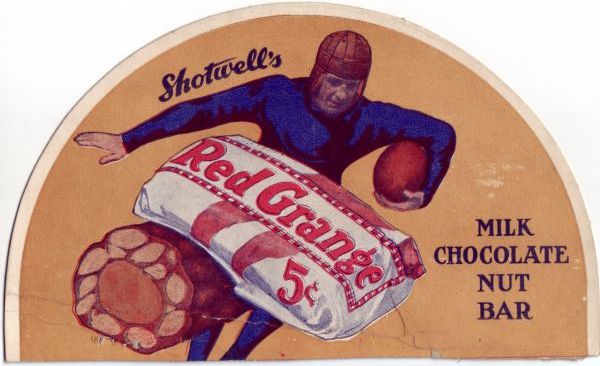
 What are the possibilities of the Christian life? To what bold frontiers might our faith aspire? Are a few believers destined for magnificent ministries, while others languish in mediocrity?
What are the possibilities of the Christian life? To what bold frontiers might our faith aspire? Are a few believers destined for magnificent ministries, while others languish in mediocrity?
